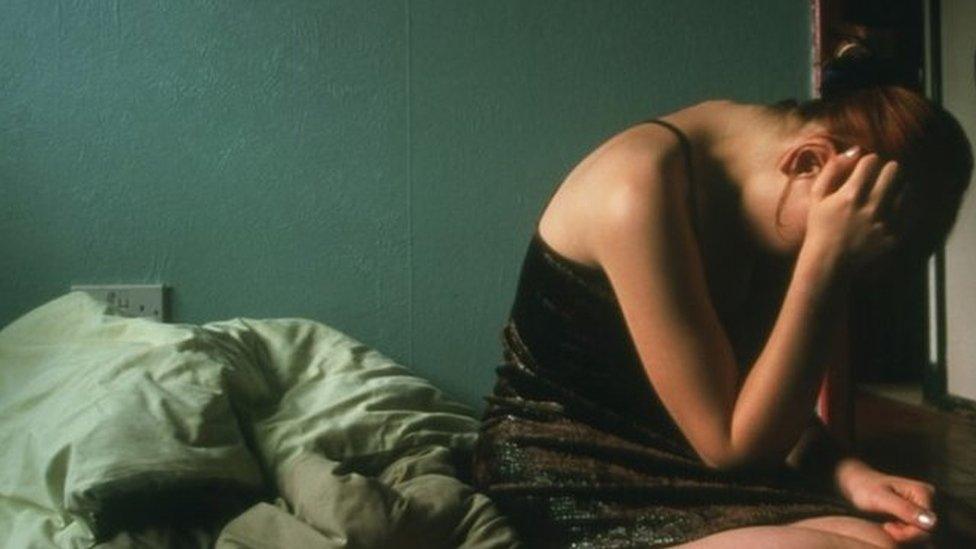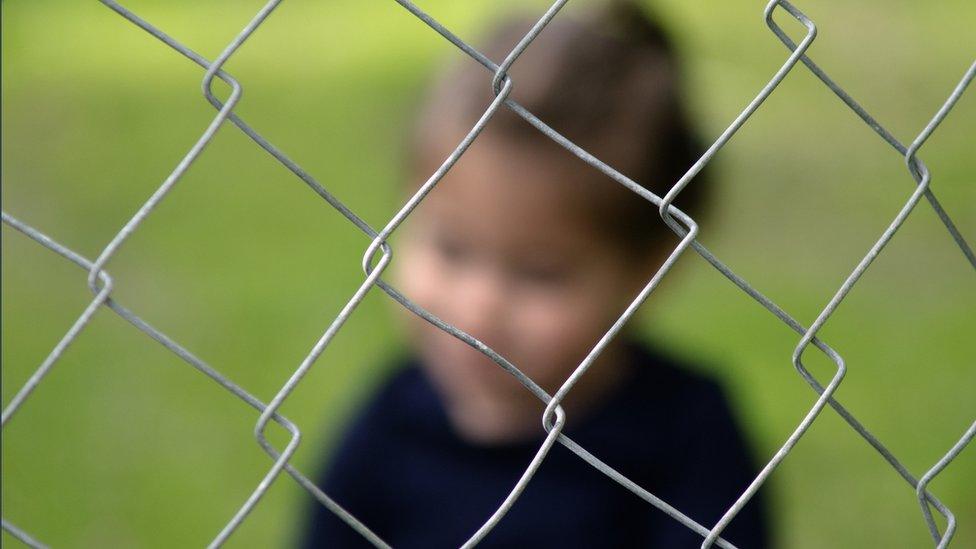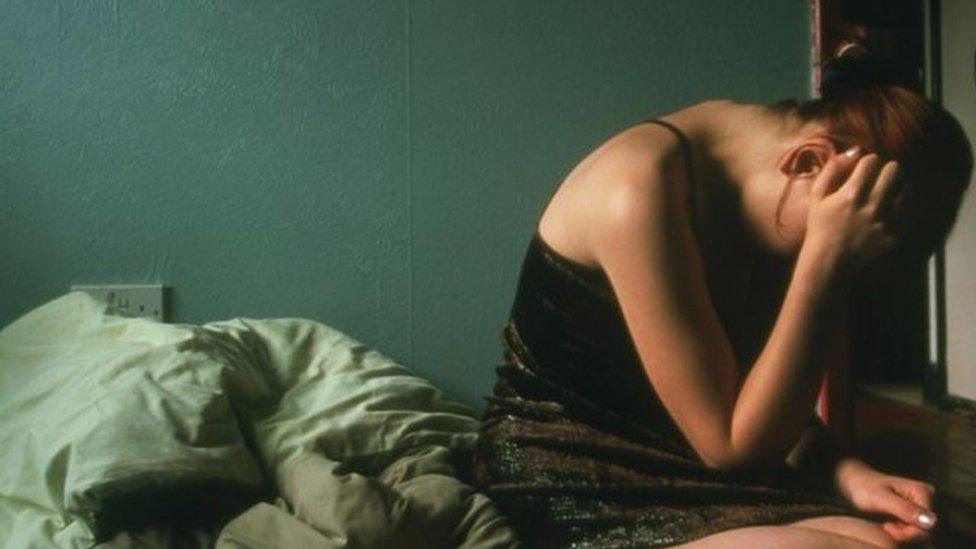Powers to tackle human trafficking risk come into force
- Published

Figures show there were 150 potential victims of trafficking identified in Scotland in 2016
Powers to restrict freedoms for potential human traffickers in Scotland have come into effect.
The order limits the movement and internet use of people suspected of trafficking or exploiting others.
Police can apply to the courts for the order when they believe there is a risk someone will commit the offences.
It follows the introduction of similar powers which put sanctions on people convicted of human trafficking and exploitation.
Police can use a Trafficking and Exploitation Risk Order (Tero) to restrict suspected human traffickers' internet use, financial activity and movements within and outside the UK.
'Worldwide problem'
The restrictions apply for two years, with criminal charges and a prison sentence of up to five years if they are broken.
Trafficking and Exploitation Prevention Orders (Tepos), introduced in June, allow courts to place similar sanctions on people convicted of exploitation offences.
Justice Secretary Michael Matheson said: "While this crime is a worldwide problem, people should be under no illusion that it is happening across Scotland, and not just in our cities."
He said the order would help to "identify and support victims, make Scotland a hostile environment for exploitation and disrupt traffickers' activity".
'Potentially Draconian'
But human rights lawyer Niall McCluskey told BBC Radio Scotland's Good Morning Scotland programme that the powers had the potential to be "draconian".
He said: "There are a number of concerns.
"These proceedings would be dealt with by the civil standard of proof, so that's the balance of probabilities as opposed to proof beyond reasonable doubt. There would be no requirement for corroboration and hearsay evidence would be admissible.
"Someone made subject to these orders would be subject to criminal sanctions for a minimum of two years with foreign travel restrictions for up to five years, so they are potentially quite draconian."
Victims of human trafficking have been identified in 27 of Scotland's 32 local authorities over the last five years.
Figures show there were 150 potential victims of trafficking identified in Scotland in 2016 - a 52% increase since 2013.
- Published30 June 2017

- Published29 August 2017
